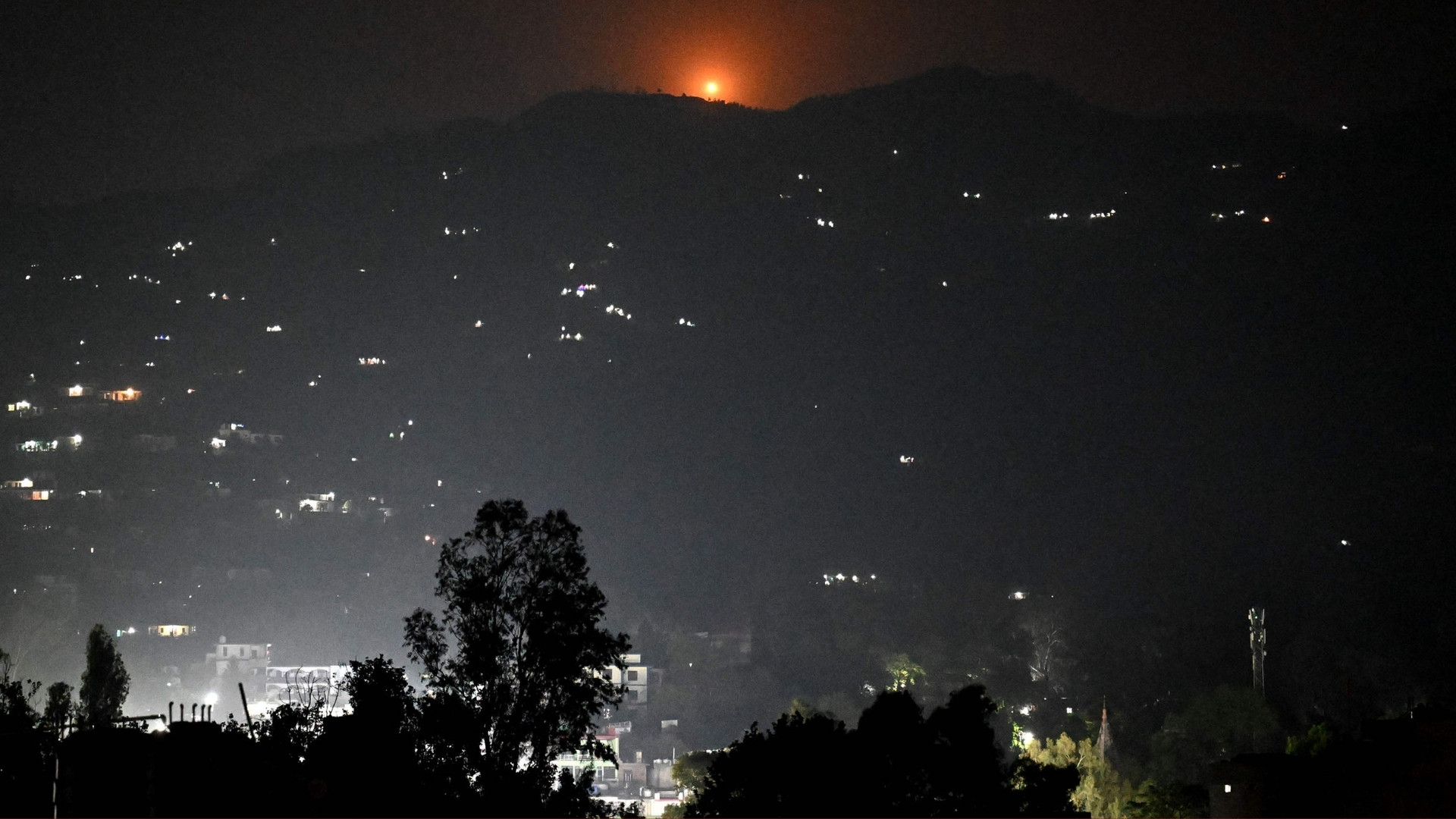INDIA-PAKISTAN TENSIONS | PAHALGAM TERROR ATTACK | KASHMIR DISPUTE | CIVILIAN TOLL | Retaliation

This morning, India fired missiles striking nine sites in the Pakistan province of Punjab and the Pakistan-administered Kashmir.
The Indian defence forces carried out a coordinated effort across the international border in Muridke, Sialkot and Bahawalpur and the line of control in Kotli and Muzaffarabad, the capital of Pakistan-administered Kashmir.
The air strike lasted 25 minutes from IST 1:05 AM to 1:30 AM and targeted terror infrastructures, including headquarters and camps of terror groups—Lashkar-e-Taiba and Jaish-e-Mohammad.
These outfits are led by Hafiz Saeed and Masood Azhar, respectively—both involved in several terror attacks in India, including the deadly 26/11 Mumbai attack and are designated as global terrorists by the United Nations Security Council.
India claims involvement of Lashkar-e-Taiba, protected and groomed under the Pakistani deep state, in the Pahalgam terror attack. To avenge the same, it carried out the Wednesday morning military operation with the name ‘Operation Sindoor’.
On the other hand, Pakistan denies its involvement in the Pahalgam attack. It condemned the air strike on its territory, terming India’s action “an unprovoked and blatant act of war” and that it “reserves the right to respond appropriately at a time and place of its choosing, per Article 51 of the UN Charter, and as enshrined in international law.”
The Indian airstrikes have also damaged the Government Health and Educational Complex in Muridke, about 30 kilometres from Lahore.
The Pakistan Army claims to have downed five fighter aircraft of the Indian Air Force, including a Rafale, violating its sovereignty. Parts of one aircraft have been found in Wuyan, near Srinagar, the capital of Indian-administered Kashmir. Besides, Pakistan fired artillery shells in Poonch, which is about 10 kilometres from the line of control.
So far, the civilian toll in Pakistan has reached 26 and eight in India.
Pakistan has warned to respond heavily to the airstrikes, while India said it was prepared to counter any further advancements, keeping the chances of an escalated conflict alive.
What happened in Pahalgam?
On April 22, five militants opened fire in Pahalgam, a tourist spot in Indian-administered Kashmir, killing at least 26 civilians.
Reportedly, the attackers singled out non-Muslim men before opening fire. Twenty six deceased were domestic tourists, one Nepali tourist and a local porter, a Muslim who was shot while trying to save tourists. The attack is the deadliest in terms of civilian casualties on Indian soil after the 26/11 Mumbai attacks.
The Resistance Force (TRF), an offshoot of Lashkar-e-Taiba, a Pakistan-based militant group, took responsibility for the Pahalgam attack the next day, stating it was in opposition to provision of residency permits to people outside the region. The TRF however retracted the claim the next day.
Post-attack build-up
On April 24, India blamed Pakistan for the attack, accusing it of backing cross-border terrorism and vowed to pursue attackers to ‘the ends of the earth’. The same day India suspended the ‘Indus Waters Treaty’, shut down Attari-Wagah border crossing, suspended visa services for Pakistani nationals and mandated Pakistan to reduce their diplomat’s size to India to 30 from 55 by May 1, including announcing Pakistan’s military advisers stationed at the embassy persona non-grata.
The Indus Water Treaty is an India-Pakistan water sharing treaty of the Indus River System, which consists of Ravi, Beas, Sutlej, Indus, Jhelum, and Chenab rivers. The two countries signed the treaty in 1960 under the mediation of the World Bank. India is an upstream party to the treaty.
Pakistan retaliated with similar measures, suspending all bilateral agreements, trade and visa services and rejecting India’s suspension of the water treaty, announcing any measures to stop or divert the water will be considered as ‘an act of war’. It also announced the closure of Wagah border along with its aerospace for Indian owned and operated airlines.
On May 6, Pakistan took it to a closed meeting of the UNSC, where it is currently a non-permanent member, to discuss tensions with India in the wake of the April 22 terror attack, which it claims to be a ‘false flag’. Instead, the member states questioned Pakistan whether the Lashkar-e-Taiba was likely to be involved in the attack.
Reacting to Pakistan’s efforts, Indian Lawmaker and UN’s former Under-Secretary General Shashi Tharoor said that the meeting did not matter and could only produce statements, urging both countries to maintain peace. He reasoned that “China would veto any resolution against Pakistan” and that against India would be “objected to and vetoed by multiple member states.”
Meanwhile, in a note to correspondents issued by his spokesperson, UN Chief Antonio Guterres expressed deep concern over Indian military operations across the Line of Control and the international border with Pakistan.
“The world cannot afford a military confrontation between India and Pakistan,” the note said, stressing that “a military solution is no solution.”
Read More Stories
Kathmandu’s decay: From glorious past to ominous future
Kathmandu: The legend and the legacy Legend about Kathmandus evolution holds that the...
Kathmandu - A crumbling valley!
Valleys and cities should be young, vibrant, inspiring and full of hopes with...
Consumer Court rulings spark nationwide doctors’ strike
Doctors across Nepal suspended all non-emergency medical services on Monday in protest against...